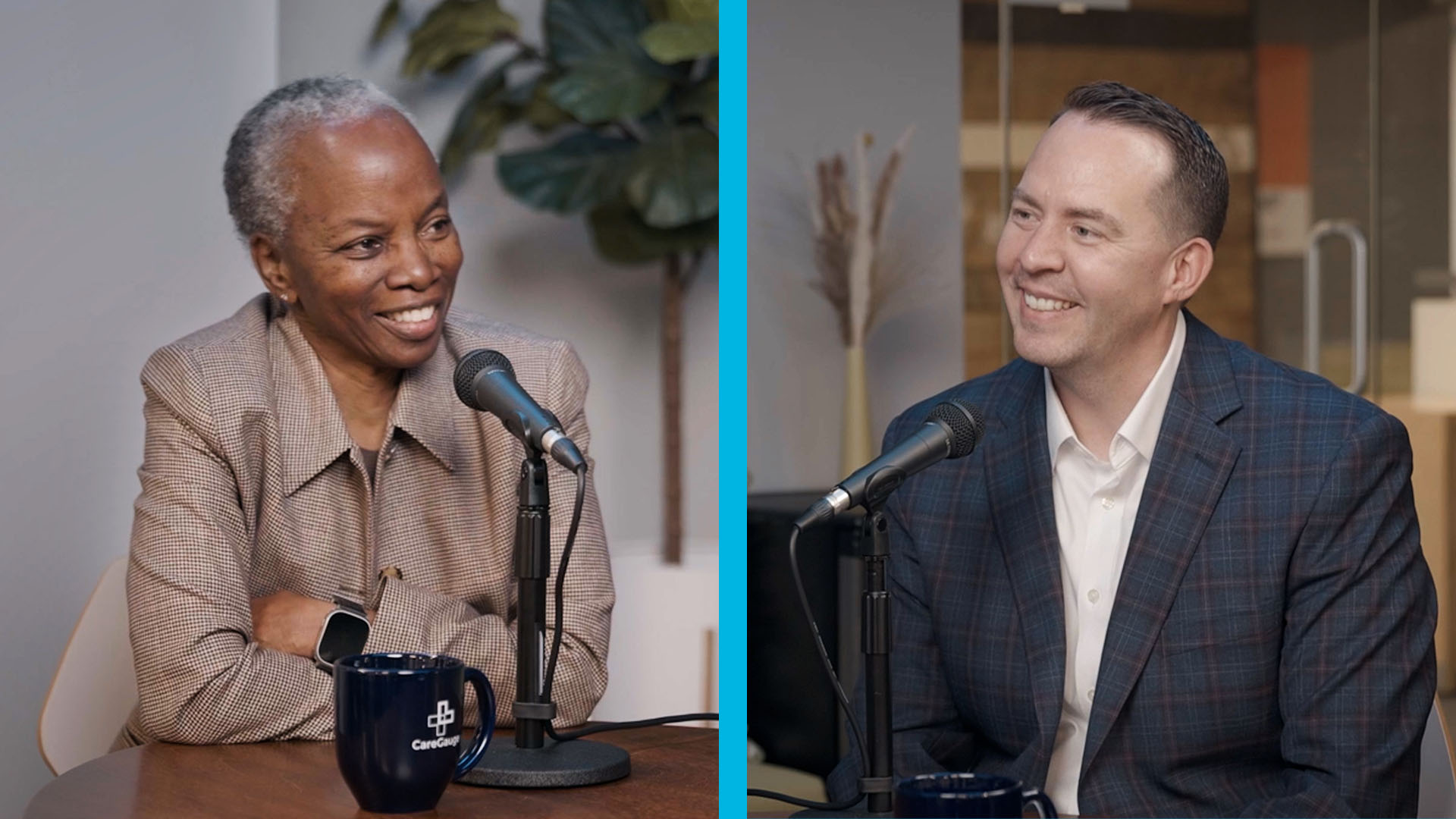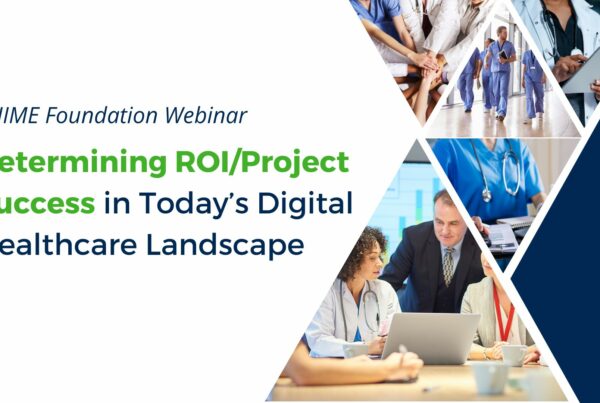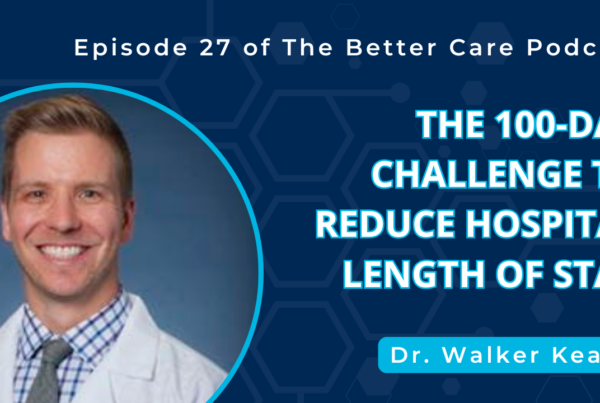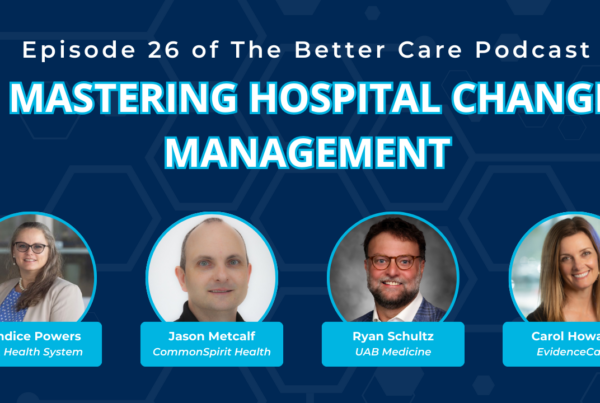From Skepticism to Synergy: How to Build Trust around AI in Healthcare
The medical field is on the cusp of a technological revolution, with artificial intelligence (AI) anticipated to revolutionize healthcare delivery. Yet, as excitement mounts, so does skepticism, particularly among frontline healthcare professionals.
In our recent episode of The Better Care Podcast, we had the privilege of interviewing Dr. Michelle Flemmings, Industry Executive & Market Development Director at Oracle who shared her thoughts on navigating this new landscape while emphasizing the critical role of building trust with clinicians and industry leaders. The following article is a summary of some of the key points of this episode.
Some quotes have been slightly edited for brevity.
Turning Skepticism to Synergy
Skepticism surrounding AI is understandable. Healthcare is a field where precision and trust are required. Careful consideration is essential to ensure AI benefits, not hinders, patient care.
“Truth be told, there’s a lot of fear, and rightfully so. In healthcare we must be very strategic. We must be very thoughtful, and consider on behalf of the patients, is this going to do harm? Because if it is, then honestly, we need no part of that.” – Dr. Michelle Flemmings
…But how do we bridge the gap and build trust among healthcare professionals?
We can start by actively engaging clinicians, demonstrating value on a small scale, and showcasing its impact on better patient care.
Start with Non-Clinical Areas
In order to get comfortable with AI, starting small is important. Dr. Flemmings suggests that healthcare institutions should initiate pilot projects in non-critical areas.
When clinicians can see AI streamlining the tasks they dislike, skepticism melts away. Demonstrating tangible benefits without disrupting established workflows helps foster trust among healthcare professionals.
AI isn’t here to replace doctors; it’s here to give them back their time for patient care.
“Start with small steps, like implementing a healthcare-specific chatbot or navigation tool. These can help patients find their way around the hospital and save time. You could also consider adding a system to manage phone inquiries, freeing up nurses. Once you see success, you can think bigger.” – Dr. Michelle Flemmings
Starting with small-scale implementations in specific areas can provide proof of concept and demonstrate AI’s impact on operational efficiency and patient satisfaction.
If you’ve experimented with AI at all, you may be familiar with this concept of “trying it out” on a part of your job or life that was low risk. And as you saw success, you slowly grew more comfortable trying it with bigger tasks. The key is being open to the “trying it out” part.
Human Expertise is Here to Stay
While AI holds vast potential to enhance decision-making and streamline processes, Dr. Flemmings stresses the importance of preserving human expertise in healthcare. She believes that AI should complement, not replace, the skills of healthcare professionals.
“Human validation is needed alongside clinical decision support. It’s imperative. We can’t simply let machines take over and operate independently without human oversight or input.” – Dr. Michelle Flemmings
It’s of paramount importance to involve physicians in the development and implementation of AI clinical decision support solutions, ensuring these tools align with clinical needs while addressing concerns surrounding autonomy and control.
Preparing Clinicians for the Impact of AI
AI’s capabilities extend beyond automating tasks. Dr. Flemmings believes it will fundamentally change the way physicians work by analyzing vast amounts of data, identifying patterns, and providing real-time insights to support decision-making.
“It will fundamentally change the way we do our jobs, and it may even alter the job itself. Rather than being optional, it will become essential. If we choose not to utilize it, we risk falling behind and potentially compromising patient outcomes.” – Dr. Michelle Flemmings
Similar to past technology and medical advancements, with new information comes a new responsibility for advancing clinical practice. Many clinicians, focused on the daily operations, might not be fully aware of this impending transformation with AI.
This is a crucial point for those in the AI/tech space to bridge the gap by actively engaging with clinicians and showing them how AI can elevate their practice, address potential challenges, and even propel their careers forward in exciting new ways.
“Medical schools and residencies should start emphasizing this from day one. Physicians need to be aware of AI’s potential early. They should understand how it can elevate their practice but also be prepared for the potential challenges it may bring.” – Dr. Michelle Flemmings
This proactive approach can build trust and ensure a smoother transition for clinicians as AI becomes an integral part of healthcare.
The Future of Healthcare with AI
Dr. Flemmings envisions a future with AI, where healthcare professionals are freed from administrative burdens. Imagine AI assistants handling data entry and paperwork, allowing doctors to focus solely on patient care. Dr. Flemming’s vision extends beyond non-clinical tasks…
Here are just a few of the visionary ideas Dr. Flemming shared with us on how AI can transform healthcare:
-
- Removing Inefficiencies: Imagine a world where doctors walk into trauma rooms equipped with an AI assistant. This app automatically captures everything from medications and conversations to timelines. This eliminates the need for manual data entry, freeing up valuable time for critical tasks and potentially improving patient outcomes.
- Diagnosis Revolution: Wearable devices constantly track our health data, but this valuable information often remains inaccessible to doctors. AI can bridge this gap by seamlessly integrating wearable data into Electronic Health Records (EHRs) in a clear and actionable format. This empowers doctors with a more holistic view of a patient’s health, potentially leading to earlier and more accurate diagnoses.
- Personalized Medicine: Tailoring treatment plans to individual patients can be challenging. AI can revolutionize this process by analyzing vast datasets and identifying patterns invisible to the human eye. These insights can then be used to develop personalized treatment plans.
- Error Minimization: Even the most skilled professionals can make mistakes. AI can act as a safety net by assisting with tasks prone to human error, such as drug dosage calculations and radiology readings. Dr. Flemmings imagines a day when an AI assistant can remind doctors of key guidelines, suggest next steps, and even catch missed details during care plan finalization. This can significantly reduce the risk of errors and improve patient safety.
- AI for a Healthier Society: The impact of AI extends beyond the walls of hospitals. By analyzing data on social determinants of health, such as access to healthcare and socioeconomic factors, AI can contribute to population health initiatives and promote health equity in ways we haven’t previously been able to see.
Dr. Flemmings’ insights underscore the potential of AI in reshaping healthcare delivery. Collaboration, transparency, and a commitment to upholding ethical standards are crucial for the successful integration of AI.
By embracing AI with caution and an open mind, healthcare stakeholders can harness its transformative power to create a more efficient, accurate, and personalized healthcare system for all.
For the full interview between Dr. Brian Fengler and Dr. Michelle Flemmings, watch or listen to Episode 15 of The Better Care Podcast.


